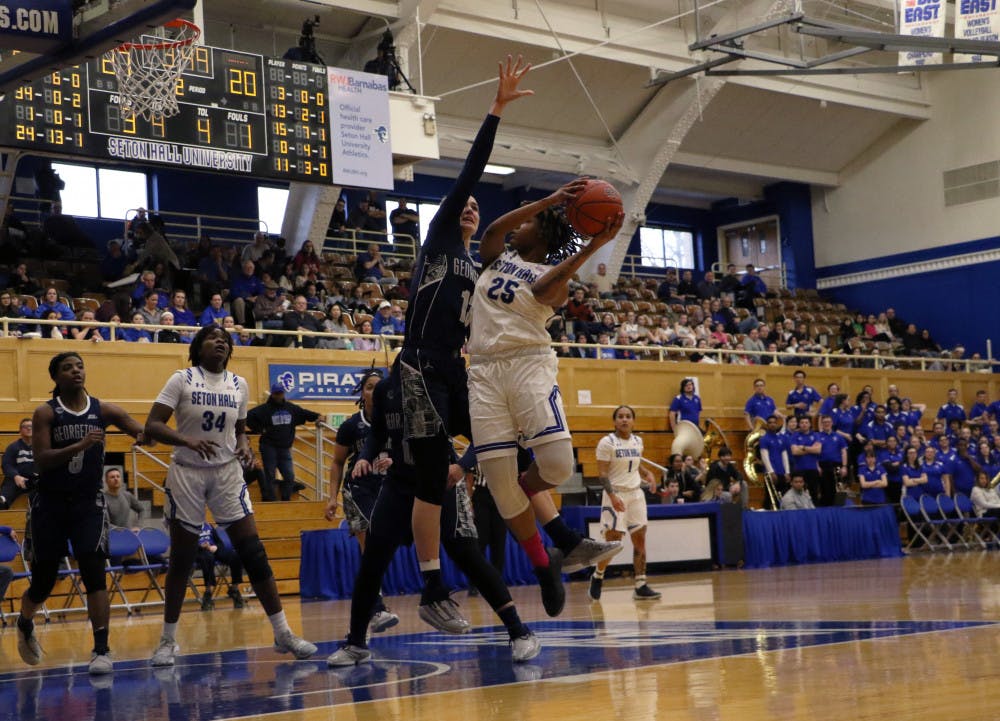On Saturday Oct. 2 the honors program at Seton Hall marked its 50th anniversary with a luncheon as part of the University Day celebrations.
According to Peter Ahr, director of the University honors program, the program invited its alumni back to see what they've become and reconnect with their friends of past years.
"It will be good to see them again, and to see what they've accomplished since their graduation," Ahr said. "I'm looking forward to meeting my former students, and to talk again with the doctors and lawyers and businessmen and professors that they've become."
According to Ahr, the program was originally designed to provide a strong academic challenge to students at Seton Hall, and it invited accepted Seton Hall students to apply to it.
"Over the past decade, the University has come to realize that the honors program offers a background in world civilization that is unparalleled in the county; and we have been recruiting students from all over to the program and to the University," Ahr said.
Currently, the program consists of 63 freshmen in their first semester at Seton Hall. The freshmen are taught in two sections each semester, with two teams of faculty working on a common syllabus.
"It's a lot of work for everybody, but it's also the best education- especially on the days when everybody is clicking," Ahr said.
"Overall, the honors program has made me aware of who we are as a humanity, as well as who I am as an individual," Omar Ahmad, a junior in the diplomacy honors program, said.
When asked about the level of difficulty, Ahmad says that he has enjoyed the program overall.
"It's been great because I get a better understanding of the world as a whole, rather than my specific major or concentration," he said. "Also, it opens you up to a whole bunch of ideas that you never even stopped to consider."
Being able to look beyond a specific major and see the world as a whole makes the course into a "learning community," according to Ahr. Professors and students alike are able to learn from each other by discussing and sharing their insights into the assigned texts.
Originally, the honors program followed a fairly standard "Western Civilization" format, emphasizing European history, philosophy, religion and art.
According to Ahr, since the 1990s the Program has gradually expanded to include Byzantine, Muslim, Chinese, Indian and Buddhist thought as well, aiming for a study of all ideas that influence the world we live in today.
"Over the past decade, the University has come to realize that our honors program offers a background in world civilization that is unparalleled in the country, and we have been recruiting students from all over to the program and to the University," Ahr said.
The faculties teaching in the honors program come from a number of departments: philosophy, history, English, religion, sociology/anthropology, biology, languages and cultures.
According to Ahr, the diverse faculty bring a number of backgrounds to the students.
"They are among the best and most challenging teachers in the University," Ahr said.
Rawan Eewshah can be reached at rawan.eewshah@student.shu.edu.





